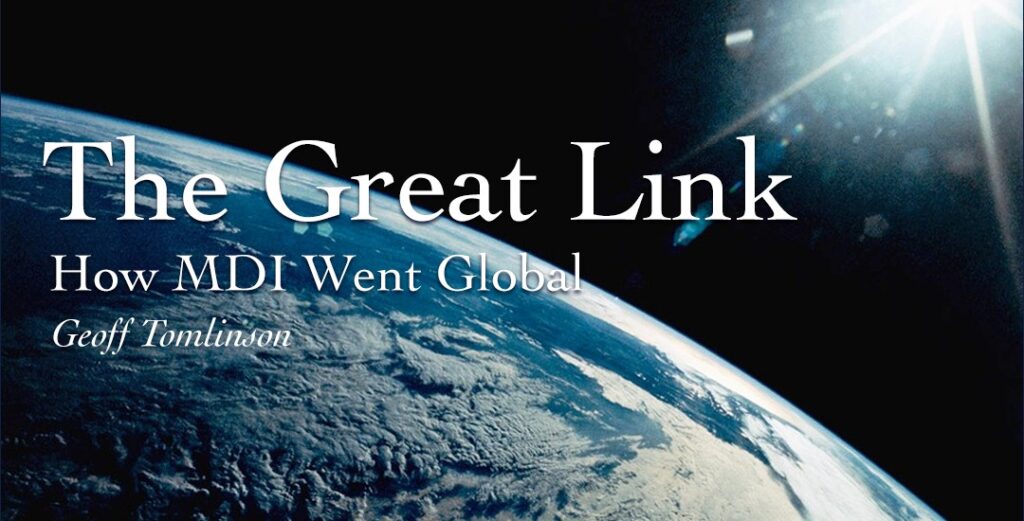Geoff Tomlinson
Guest Writer
Geoff Tomlinson is a longstanding member of Mentor, Discover, Inspire, and served as its president from 2017 – 2019.
Back when I was President of Mentor, Discover, Inspire (MDI), we had strong hubs in a number of places, hotspots like Toronto and Atlanta. California was another, as was Alberta, Canada. We were well represented in the mid-Atlantic and in several other locales, yet there remained men all over the place – in North America and around the world – who did not live near a sitting MDI team. We’ve long had an ethos for doing the unreasonable, but 12 hour drives to and from a weekly meeting were a little over the line.
We had attempted using phone-based teams but these had never really worked: there is a distinct lack of intimacy, and too many signals are missed without the visuals. We simply had no way to serve these men.
Still, we had set up a Contact Us section on our website and that garnered some interest. But as most respondents lived far from any current team, there was little we could do.
Our solution was once again to set up a call, via telephone, where these men could come and interact with an MDI leader. It wasn’t a team, as such. The call was just a drop-in session for these men to talk about their lives. By May of 2018, as you might imagine, we had reaped a meager crop: two men, neither of whom were MDI members, were chatting with the leader for an hour each week by phone.
But then a man named Dan Kempner, who had been on teams in Massachusetts for ten years, moved his family to Saigon, Vietnam. I knew him from his time serving on the MDI board, and we had formed a strong relationship
One day I got a call from him saying he had joined the weekly call for lack of any alternative. He was not pleased. It was providing him no value.
“Help me,” he demanded. “I need a men’s team!”
Now, as President, the last thing I needed was another problem. Though I sympathized, all I could say was, “I’m sorry man. I get it, but what can I do?”
But Kempner, to my surprise, had a solution. We’d already been using a relatively new technology, the video meeting platform called Zoom, for Board of Directors meetings. Kempner, who had been on the board, knew that. But it had never occurred to any of us to use it for anything else.
Kempner said irritably, “Look Tomlinson, if we can use Zoom for leadership stuff why can’t we use it for regular team meetings? Get me a link and the three of us who were on the phone calls will get it started.”
It was a blinding flash of the obvious.
I personally knew about a half-dozen men who had moved out of MDIs face-to-face geography. Maybe this would work for them, too. After all, in an amazing act of optimism and faith, we’d begun calling ourselves MDI Global. Here was a man on the other side of the world who, by his mere presence on a team would make that true. And if it worked for him, from many time zones away, well… it could work for an incredible number of men.
But would it work? Where would be the intimacy? The closeness? The circle? How could we look another man in the eye, or drive to his house if he needed help? It would never work…right?
An unfortunate part of any president’s job, especially in an organization with limited, all-volunteer resources, is to reject a bunch of good ideas so that a couple of great ones, things that could really move the organization forward, can be effectively executed. This, I could feel in my bones, was a great one.
I appointed Kempner the Team Leader of this embryonic team on the spot, got busy getting him a Zoom line, and contacted several men I knew – men living outside MDI’s geographic purview — who might well be interested in an online team. In fact, they were. Kempner and his two accomplices were also, and the ball was rolling.
Shortly, I accepted an invitation to this newfangled, no-name team’s first online meeting, and brought our Executive Director with me. We held our breath, wondering if a team that met virtually – no fire, no hugs, no shoulder-to-shoulder – could actually be effective.
As I watched the seven little Zoom squares light up one-by-one to join my own, I thought about the geography involved. We had a man on Vancouver Island and two more in California. A fellow in Tennessee, whom I’d known for years, was there, along with myself and another man in Ontario. Our Exec was in Maine and Kempner, in Asia, was farthest East. None of us really knew what to expect.
The meeting started like any other, with short introductions and MDI’s mission. We moved on to check-ins, as teams almost always do. The men’s lives were in various states, as always, and one by one they put those things on the table. But the last man – someone who previously spent years on a men’s team – said everything was ‘okay’ with his life. Nothing to see here, fellas.
Now, these men were all strangers. Everything they knew about the others they’d learned within that hour. Yet, when that final man’s check-in ended, one of the experienced men piped up and said, “if everything is really okay, you should tell your face. Because your face looks like everything is not okay at all.”
The man checking in broke down. In moments, he was crying uncontrollably, and choking out all that was really going on. His isolation, his fear, his despair. A half-hour later, after he was given the exact kind of support ground-based teams offer their men, I had the sense this team was already formed. It was a tremendous meeting. The men had bonded by rallying around a man, and the virtual wing of Mentor Discover Inspire was launched. It was a living, breathing, reality.
As the meeting ended, I turned off my computer feeling inspired, and excited too, knowing this was indeed going to be big. Not just for MDI but for the hundreds, perhaps thousands, of men who cannot make it to physical team meetings. These men, in their very first hour, had led a man they didn’t know to a major breakthrough, the type seen only occasionally on any MDI team. It was extraordinary and we all felt it.
At the time, MDI was testing Facebook advertising, which was bringing in men from all sorts of remote locations, men we simply could not have served before. In addition, we had men working as airline pilots, or pulling the night shift, or who were ill. These men also could not attend ‘normal’ team meetings but now we had a place for them, a team for them. And soon, perhaps, a division.
Within the year the initial team, which the men had named ‘Atlas,’ had grown to 13 members and needed to split. It did, and did so again. Its growth, almost right out of the gate, was far ahead of the organization as a whole. The experiment had worked and the rest is… well, the rest is a story for someone else to tell.

